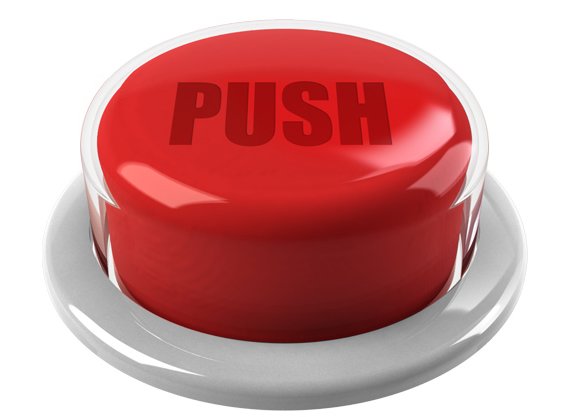
“He pushes my buttons.”
“She knows how to manipulate me.”
We’re all familiar with, and at some time have felt, these particular expressions. What do they actually mean?
Emotions move us. (The Latin root of the word, “emotion,” literally means “to move.”) They prepare us to do things by sending chemical signals to the muscles and organs of the body. Whenever you have an emotion, you’re moved to do something, whether or not you act on it.
The emotions that motivate troublesome behavior are those that make us feel vulnerable and devalued. (Examples are guilt, shame, and anxiety.) In response, we’ll often try to feel more powerful by devaluing others (anger, resentment, envy, or jealousy). Or we’ll overeat, overwork, or drink too much. The emotional system becomes narrow, rigid, and weak. You’re either resentful or nervous or depressed. You struggle to maintain interest and enjoyment. Other people seem to control how you feel. They “push your buttons.”
[Source: Steven Stosny, Ph.D., from “Anger in the Age of Entitlement” and psychologytoday.com 8/14/15]
To understand why emotions move us, we first have to define what emotions actually are.
In my book Grow Up America! I defined emotions as “broad categories of feelings and self-statements which are an expression of your ongoing value judgments, ideas, and observations. Emotions represent such value judgments and ideas in automatized, immediate form.”
Emotions are condensations of thoughts, ideas and beliefs. Logical or not, true or not (even by your own analysis), they’re part of who you are.
Emotions, while biologically influenced (everything is, since we’re biological beings), are not ultimately biological. Emotions are ultimately thoughts in an automatic, condensed form.
When you’re angry, it’s the product of a belief you hold about someone or something. “Joe screwed me over!” This is the product of your belief that Joe factually did something or another, and your underlying conviction that it violated some rule of proper human conduct or morality.
When you’re joyful, it’s the product of a belief you hold about what life should be about, along with the fact that, in some situation or another, you achieved or accomplished something that you consider worthwhile, life-advancing, meaningful and/or fun activity.
When you say that someone knows how to “push” your “buttons,” or otherwise manipulate you, what you’re really saying is: “This person knows how I think, what’s really important to me, and how to say or do things that encourage me to become aroused in that context.”
Often, the statement of “pushing my button” is a negative evaluation, or even a condemnation. But it really depends on what the person or situation involves. Maybe it’s sexual or romantic arousal, pleasure or humor; maybe it’s a determination to distract you, put you down, or otherwise throw you off course. Regardless, the focus is on the other person (friend or foe), rather than on yourself, and on the actual causes of your emotions.
Sometimes the expression, “He’s pushing my buttons” is based on a false belief. It’s similar to the false belief, “She’s making me feel shameful, guilty, etc.”
As Dr. Stosny’s quote suggests, it sometimes seems as if others are “making” us feel a certain way. But ultimately, feeling a certain way is due to our own ideas, beliefs and convictions.
For example, you might tell a small “white” lie or do something else you consider questionable or wrong. A friend or associate actually or possibly exposes your lie. You might feel like this friend or associate is “making me feel guilty.” Actually, that’s not true. While the friend or associate might be the precipitating factor for your emotion, he or she is not the cause of your emotion. Your emotion in that case — guilt or shame — is caused by the fact that you actually did something that you consider, by some standard, to be an immoral or otherwise questionable action.
Facts combined with evaluations about those facts are the deepest, real causes of emotions.
The late cognitive psychotherapist Albert Ellis, Ph.D. had a great way of illustrating this point. Ellis said that all emotions are caused by two things: One, an activating event. Two, an underlying belief, assumption or idea.
Dr. Ellis made this into a convenient, easy-to-remember acronym: ABC
A: “Activating” event (e.g. I tell a white lie)
B: “Belief” (e.g. Your premise that “Lying is always wrong, even a white lie.”)
C: “Consequence” (The emotional consequence, in this case — shame or guilt)
The emotional consequence will depend on your underlying belief or premise. If you don’t believe white lying is ever wrong, or if you don’t even think lying is wrong (say you’re a sociopath), then you will not feel guilt or shame. You might feel something else, but not that.
When you say someone else is “pushing my buttons,” what you’re really saying is, “I’m having certain emotions in this situation.” The real issue is not who’s pushing your buttons. The important thing to figure out is what beliefs you hold that are causing the emotions.
Use your reason, common sense and rational intelligence to figure out the actual cause of your emotions. Don’t get distracted by blaming or fixating on other people.
This is part of what it means to take responsibility for your emotions, and ultimately for your own life.
Be sure to “friend” Dr. Hurd on Facebook. Search under “Michael Hurd” (Rehoboth Beach DE). Get up-to-the-minute postings, recommended articles and links, and engage in back-and-forth discussion with Dr. Hurd on topics of interest. Also follow Dr. Hurd on Twitter at @MichaelJHurd1
